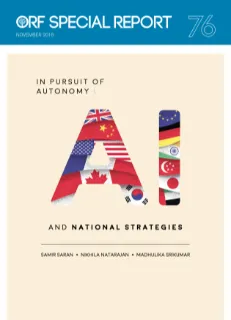AI and national strategies
Industry leaders and politicians the world over are scrambling to lead the development and use of artificial intelligence (AI) for the power and value it accrues. However, AI promises to implicate more than just politics and economics. It poses fundamental questions on how societies and communities will be organised in the future–capable of radically transforming workforce and work-life as we know it.
While some countries are beginning to explore the competitive advantage across the full spectrum of AI deployment; others are studying the potential benefits that this predictive technology can offer. Even as governments may be unaware of what the full connotation of AI might be, they are determined to drive the debate and deployment around this new suite of technology and life. If governments are unable to foresee changes in the jobs landscape that the technology will bring about — and fail to deliver on its responsibility of providing opportunities for its people, especially the youth — they will have to bear the political backlash.
In the last 24 months alone, more than a dozen countries have devised national strategies on AI; many of these tomes run into several hundred pages. This publication examines 12 of these national strategies: the US, UK, EU, Germany, South Korea, Singapore, India, France, China, Canada, UAE and Japan.
The views expressed above belong to the author(s). ORF research and analyses now available on Telegram! Click here to access our curated content — blogs, longforms and interviews.

 PDF Download
PDF Download



 PREV
PREV




